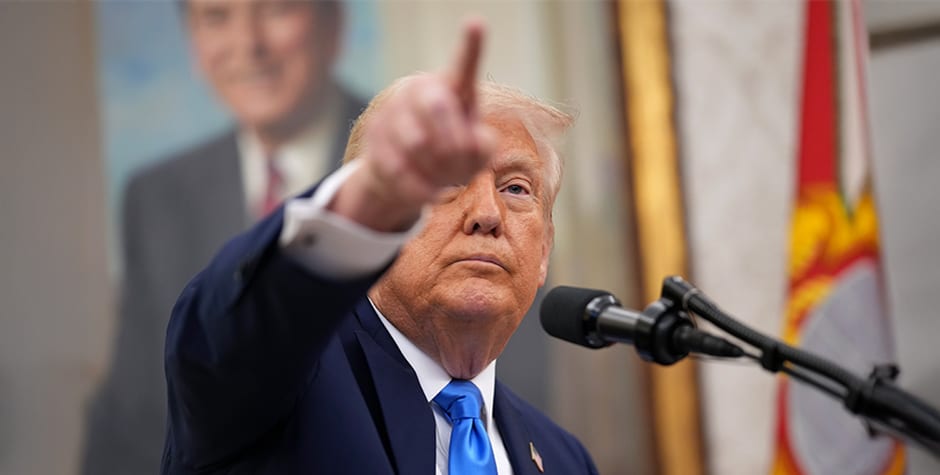Judicial Power Grab: ACLJ Fights Back Against DNC's Attack on Presidential Authority With Amicus Filing in DNC v. Trump
Listen tothis article
The ACLJ has filed an amicus curiae brief in the U.S. District Court for the District of Columbia in Democratic National Committee, et al. v. Donald J. Trump, et al., standing firmly against an alarming attempt to undermine the constitutional separation of powers.
At the heart of this case is yet another effort by partisan actors to weaponize the judicial system against President Trump and the broader authority of the Executive branch. The plaintiffs have sought a preliminary injunction, a move that, if granted, would set a dangerous precedent of judicial overreach into the core functions of the presidency.
Why This Case Matters
The plaintiffs, in this case, aim to constrain the Executive authority of the President in a way that directly contradicts the Constitution’s structure. The Supreme Court has repeatedly affirmed the necessity of preserving these boundaries, recognizing that the President’s ability to execute the law free from undue interference is foundational to our republic. As we note in our brief, the Supreme Court itself has underscored that “the principle of separation of powers was not simply an abstract generalization in the minds of the Framers: it was woven into the document that they drafted in Philadelphia in the summer of 1787.”
The ACLJ has a strong track record of defending constitutional principles before the Supreme Court and federal courts across the country, and this case represents another opportunity for the ACLJ to fight for those principles.
The Rising Threat of Judicial Overreach
This case is part of a disturbing trend in which federal judges are increasingly using preliminary injunctions (PI) and temporary restraining orders (TROs) to interfere with the President’s ability to carry out his constitutional duties. These judicial orders – sometimes issued by a single district judge – can hamstring Executive action, effectively overriding the will of the people as expressed through their elected leader.
In this case, the President issued an Executive order directing agencies like the Federal Election Commission to harmonize their legal interpretations and enforcement goals with those of the President. This aligns with the Constitution’s design: that the Executive branch is ultimately responsible to the people through the President. None of the Executive heads, agency leaders, or officers are elected; their only democratic accountability comes through the President.
Now, in DNC v. Trump, we see an attempt to use the courts to curtail presidential authority through yet another broad and politically motivated PI request. The DNC is arguing that while the case matriculates through the judicial system, an often yearslong process, the Executive order should not affect one of the country’s most powerful agencies. The FEC is thus at risk of being insulated from any democratic accountability during this process. This is not how our system of government was designed to function. The judiciary is meant to interpret the law, not act as a supervisory board over the Executive branch.
The Dangerous Implications of the Plaintiffs’ Arguments
If the plaintiffs were to succeed in their attempt to secure a PI, the ramifications would be profound. The judiciary would be positioned as an arbiter of Executive decision-making in a manner that violates longstanding legal precedent. Nearly all of President Trump’s actions would be stalled for months as the judiciary hashed out each detail in lengthy appeals processes: exactly the point of lawfare. This would open the floodgates to future politically motivated legal actions designed to paralyze any Administration that does not align with the prevailing political agenda of the moment.
The separation of powers exists for a reason. The President is elected to lead and execute the laws – not to be subjected to constant, unchecked interference from the courts. The misuse of PIs and TROs to dictate Executive policy is an abuse of judicial authority that threatens the very structure of our government.
Moving Forward
This case represents yet another front in the broader battle to defend the rule of law from those who seek to reshape our legal system to serve political ends. The ACLJ remains unwavering in our mission to ensure that the Constitution remains the guiding authority for our nation’s governance – not the shifting whims of political actors.
Stay engaged with the ACLJ by supporting our work to protect freedom and justice in America.
